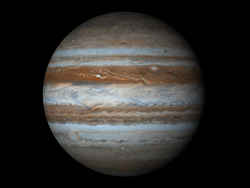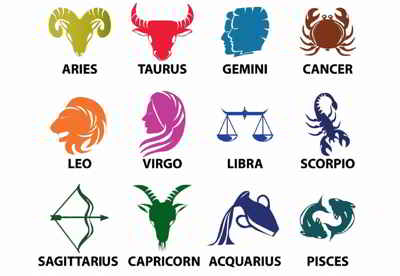Western Astrology: Classical Planets: Jupiter
Jupiter has rulership over the sign Sagittarius, the sign that governs the 9th house in the natural zodiac, and is exalted in Cancer.
The seven classical planets are those easily seen with the naked eye, and were thus known to ancient astrologers. They are the Sun, Moon, Mercury, Venus, Mars, Jupiter and Saturn.
Jupiter is the planet of luck. Jupiter is stable and not bumping us into the sun like a marble because that is what happens in most of the other solar systems. Jupiter is stable therefore have been able to live for so long and change to this level of mindfulness. Jupiter shows not only luck but soul connections and ancestral karma. It rules evolution. It breaks with custom and starts new ways of living, thinking and growing. It passes on new knowledge to it's children. People with the same Sun sign as your Jupiter sign will like you and feel a connection to you.. We all have Jupiter in our sign about once every twelve years. Relaxation time is also one of Jupiter's pastimes. A walk in the park with the family pet, sports and games of chance - these are all ruled by this planet. Finally, Jupiter often indicates great wealth. Jupiter rules the Sign of Sagittarius.
Western Astrology: Classical Planets: Jupiter
Jupiter |
|

Jupiter is known as the King of the gods and is considered a social planet. In Roman mythology, Jupiter is the ruler of the gods and their guardian and protector, and his symbol is the thunderbolt. The Romans believed that Jupiter granted them supremacy because they had honored him more than any other people had. Jupiter was "the fount of the auspices upon which the relationship of the city with the gods rested." He personified the divine authority of Rome's highest offices, internal organization, and external relations. His image in the Republican and Imperial Capitol bore regalia associated with Rome's ancient kings and the highest consular and Imperial honors.
Jupiter is the fifth planet from the Sun and the largest planet in the Solar System. It is a giant planet with a mass one-thousandth that of the Sun, but is two and a half times that of all the other planets in the Solar System combined.
Radius: 43,441 miles
Distance from Sun: 483,800,000 miles
Mass: 1.898E27 kg (317.8 Earth mass)
Orbital period: 12 years and spends (361 days) in each sign of the zodiac.
Gravity: 24.79 m/s?
Moons: Europa, Io, Ganymede, Callisto, Amalthea, Adrastea, More
In the same way, the planet Jupiter is the king of the other planets, a giant in size with spectacular, brightly colored clouds and intense storms. Some astronomers believe that it plays an important protecting role in using its massive gravity to capture or expel from the solar system many comets and asteroids that would otherwise threaten Earth and the inner planets. Jupiter is the first slow-moving planet, the biggest of the solar system, and twelve times the size of the Earth. Jupiter is usually the fourth brightest object in the sky (after the Sun, the Moon and Venus).
Astrologically, Jupiter is associated with the principles of growth, expansion, prosperity, and good fortune. Jupiter governs long distance and foreign
travel, higher education, religion, and the law. It is also associated with the urge for freedom and exploration, humanitarian and protecting roles,
and with gambling and merrymaking.
The 1st-century poet Manilius described Jupiter as temperate and benign, and the greater benefic. It was regarded as warm and moist in nature, and
therefore favorable to life. In medicine, Jupiter is associated with the liver, pituitary gland, and the disposition of fats; it governed the sanguine
humor. In modern astrology, Jupiter is the primary native ruler of the ninth house, but traditionally, Jupiter was assigned to both the second and
ninth houses: the house of values and the house of beliefs, respectively.
Rules Day of the Week: Thursday
Thursday is ruled by Jupiter. "Thursday's child has far to go" might thus be interpreted as a person who will travel and learn. People born on Thursday are said to go far in life, because Jupiter is the generous, benevolent planet, and is the luckiest planet of them all. If you were born on a Thursday, consider yourself to be very lucky.
Jupiter is associated with Thursday, and in Romance
languages, the name for Thursday often comes from Jupiter. Dante Alighieri associated Jupiter with the liberal art of geometry. In Chinese astrology, Jupiter is
ruled by the element wood, which is patient, hard-working, and reliable. In Indian astrology, Jupiter is known as Guru or Brihaspati and is known
as the 'great teacher





